With growing concerns about the impact of plastic waste on the environment, governments and organizations around the world are taking steps to reduce its usage. One such initiative is the implementation of a 10p bag charge, which aims to discourage the use of single-use plastic bags.
The 10p bag charge, also known as the plastic bag levy, is a fee that customers are required to pay for each plastic bag they use when shopping. The charge is meant to encourage shoppers to bring their own reusable bags and reduce the number of plastic bags being handed out by retailers.
The introduction of the 10p bag charge has led to a significant decrease in the usage of single-use plastic bags. Many people have become more conscious of their plastic consumption and are actively seeking out alternative options, such as fabric or paper bags, to carry their groceries.
The revenue generated from the 10p bag charge is often used to fund environmental and sustainability projects. This helps to further promote the importance of reducing plastic waste and supports initiatives that aim to protect the planet for future generations.
- What is 10p bag charge?
- Why was the 10p bag charge introduced?
- How does the 10p bag charge work?
- What are the benefits of the 10p bag charge?
- 1. Reducing Plastic Waste:
- 2. Conservation of Resources:
- 3. Financial Benefits:
- What are the criticisms of the 10p bag charge?
- 1. Cost for consumers
- 2. Ineffectiveness
- 3. Lack of alternatives
- 4. Impact on small businesses
- Question-answer:
- Why is there a 10p bag charge in the UK?
- When was the 10p bag charge introduced in the UK?
- Which stores are required to charge 10p for bags?
- Can I still get free bags at shops after the 10p charge was introduced?
- What happens to the money collected from the 10p bag charge?
- What is the 10p bag charge?
What is 10p bag charge?
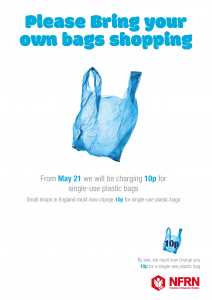
The 10p bag charge is a policy implemented by the government to reduce the usage of single-use plastic bags. It requires retailers to charge customers 10p for each new plastic bag they use for their purchases. The implementation of this charge aims to encourage people to bring their own reusable bags when shopping.
The charge was introduced in England in October 2015, following successful initiatives in other parts of the United Kingdom. Similar measures have been adopted in Wales, Scotland, and Northern Ireland. The policy has proven to be effective in reducing plastic bag waste and promoting sustainable shopping habits among consumers.
The 10p bag charge applies to all retailers, including supermarkets, convenience stores, and other establishments where goods are sold. It is mandatory, and retailers are required to charge the fee for each new carrier bag used, unless the bag falls within specific exemptions, such as for certain types of loose food or medicines.
The money generated from the 10p bag charge is typically used by retailers to support environmental and charitable initiatives. Some retailers donate the proceeds to organizations dedicated to environmental conservation, while others invest in projects that promote sustainable practices.
By implementing the 10p bag charge, the government aims to reduce plastic waste, protect the environment, and encourage individuals to adopt more sustainable behaviors. It is part of a larger effort to tackle plastic pollution and promote a more eco-friendly society.
Why was the 10p bag charge introduced?
The introduction of the 10p bag charge was a measure implemented by the UK government in an effort to reduce the usage of single-use plastic bags and encourage more sustainable options. The charge was put in place to discourage consumers from taking a disposable bag every time they made a purchase, and instead promote the use of reusable bags.
Plastic bags have a significant impact on the environment, as they are not biodegradable and can take hundreds of years to decompose. They often end up in landfills or as litter, posing a threat to wildlife and marine ecosystems. By charging for plastic bags, the government aims to reduce their consumption and encourage individuals to consider more sustainable alternatives.
The introduction of the 10p bag charge has been successful in changing consumer behavior. Since its implementation, there has been a significant decline in the use of single-use plastic bags, leading to a reduction in litter and environmental pollution. The revenue generated from the bag charge is often donated to charitable and environmental causes, further contributing to the conservation efforts.
The 10p bag charge is part of a wider strategy to tackle plastic waste and promote a more sustainable society. It acts as a reminder for individuals to be more conscious of their consumption habits and make environmentally friendly choices. By reducing the demand for single-use plastic bags, the government hopes to contribute to a greener future and protect the environment for generations to come.
| Benefits of the 10p bag charge: |
|---|
| Reduces plastic waste and pollution |
| Encourages the use of reusable bags |
| Generates revenue for charitable causes |
| Raises awareness about the environmental impact of plastic bags |
| Promotes a more sustainable society |
How does the 10p bag charge work?
The 10p bag charge is a fee that customers need to pay when purchasing a single-use plastic bag from certain retailers. The purpose of this charge is to discourage the use of these bags and promote the adoption of more sustainable alternatives.
When a customer goes to a participating retailer and requests a single-use plastic bag, they will be asked to pay an additional 10p for the bag. This charge applies to all types of stores, including supermarkets, convenience stores, and other businesses that sell goods or products.
The 10p bag charge is not mandatory, but it is strongly encouraged. Retailers can decide to absorb the cost of the charge themselves or pass it on to the customers. However, most retailers choose to pass on the charge as it helps reduce the demand for single-use plastic bags.
By implementing this charge, the goal is to encourage customers to bring their own reusable bags and reduce the amount of plastic waste generated. The money collected from the bag charge is typically used for environmental initiatives or donated to charitable causes.
It’s important to note that some types of bags are exempt from the charge. For example, bags used for certain types of fresh produce, unwrapped food, or prescription medicines are not subject to the charge. Additionally, retailers in certain areas may be exempt from the charge if they meet specific criteria.
Overall, the 10p bag charge is a simple and effective way to promote sustainability and reduce the environmental impact of single-use plastic bags. By making customers think twice about using these bags and encouraging the use of reusable alternatives, it is hoped that this charge will contribute to a more sustainable future.
What are the benefits of the 10p bag charge?
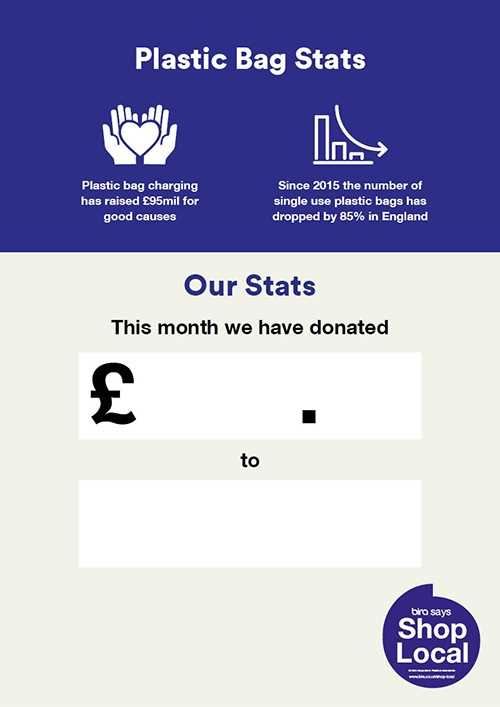
The introduction of the 10p bag charge has brought several benefits for both the environment and society as a whole. Here are some of the key advantages:
1. Reducing Plastic Waste:
The 10p bag charge has played a crucial role in reducing the consumption of single-use plastic bags. By encouraging individuals to bring their own reusable bags, the amount of plastic waste being generated has significantly decreased. This helps to combat the severe environmental impact of plastic bags, including pollution and harm to wildlife.
2. Conservation of Resources:
By using their own reusable bags, individuals are helping to conserve valuable resources. The production of plastic bags requires significant amounts of energy, water, and raw materials. By reducing the demand for plastic bags, less energy is consumed, and fewer natural resources are depleted during the manufacturing process.
3. Financial Benefits:
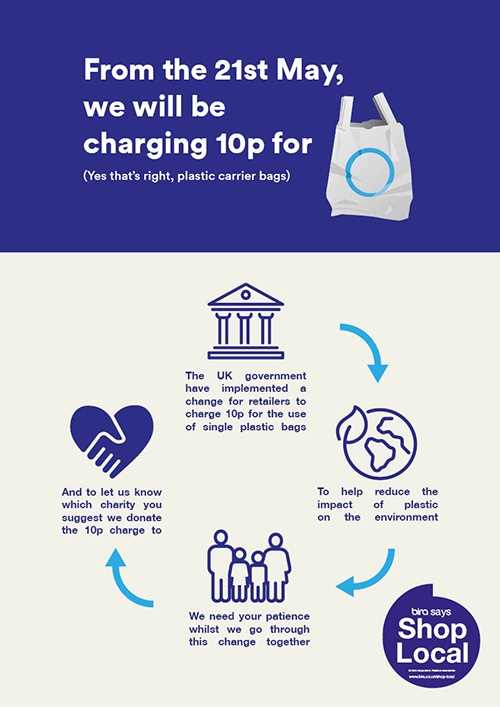
The 10p bag charge has provided some financial benefits as well. Retailers often donate a portion of the money collected from bag charges to environmental causes or local charities. This additional funding can support initiatives that aim to protect the environment, improve sustainability practices, or assist communities in need.
Moreover, the bag charge also acts as a deterrent for unnecessary bag consumption, prompting individuals to be more mindful of their consumption habits. By reducing unnecessary bag usage, individuals can save money and become more conscious of their overall environmental impact.
The 10p bag charge has demonstrated its effectiveness in driving positive change towards a more sustainable future. By reducing plastic waste, conserving resources, and providing financial benefits, it serves as a tangible solution to the global issue of plastic pollution and encourages individuals to make environmentally friendly choices in their daily lives.
What are the criticisms of the 10p bag charge?
While the 10p bag charge has been implemented with the intention of reducing plastic waste and promoting environmentally friendly behavior, it has faced criticisms from various groups and individuals. Some of the main criticisms of the 10p bag charge are:
1. Cost for consumers
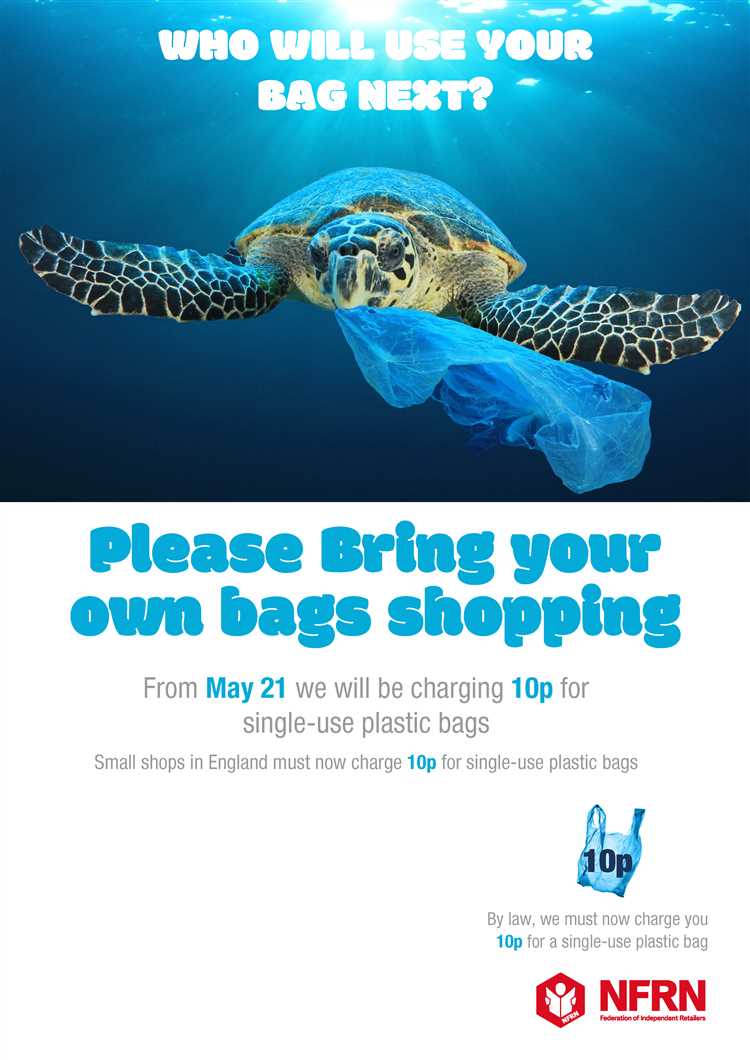
One of the most common criticisms is that the 10p bag charge imposes an additional cost on consumers. People argue that it is unfair to charge for something that was previously given for free, and that this extra expense could be burdensome for households on a tight budget.
2. Ineffectiveness
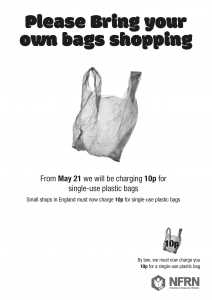
Another criticism is that the 10p bag charge is not effective in achieving its intended goal. Critics argue that the charge does not significantly reduce plastic bag usage, as people are willing to pay the small fee rather than remembering to bring their own reusable bags. They argue that more drastic measures are needed to tackle the issue of plastic waste.
3. Lack of alternatives
Some critics believe that the 10p bag charge does not offer viable alternatives to single-use plastic bags. They argue that the focus should be on encouraging the use of more sustainable options, such as biodegradable or reusable bags, rather than simply charging for plastic bags.
4. Impact on small businesses
Small businesses have also raised concerns about the 10p bag charge. They argue that the additional cost of providing bags and implementing the charge can have a negative impact on their profit margins. Some businesses may also find it challenging to comply with the regulations and may face difficulties in adjusting to the new system.
In conclusion, the 10p bag charge has faced criticism regarding the cost for consumers, its effectiveness in reducing plastic waste, the lack of alternatives, and the impact on small businesses. While it is designed to address the issue of single-use plastic bags, there are differing opinions on its efficacy and fairness.
Question-answer:
Why is there a 10p bag charge in the UK?
The 10p bag charge in the UK was introduced to reduce the number of single-use plastic bags being consumed and discarded, in order to help protect the environment. By charging for plastic bags, it encourages people to bring their own reusable bags when shopping, which reduces plastic waste.
When was the 10p bag charge introduced in the UK?
The 10p bag charge was introduced in the UK on October 5, 2015 in large shops and supermarkets. Prior to this, there was already a bag charge, but it only applied to larger stores.
Which stores are required to charge 10p for bags?
All retailers in England, Wales, and Scotland with more than 250 full-time employees are required to charge a minimum of 10p for each single-use carrier bag. This includes larger supermarkets and high street stores.
Can I still get free bags at shops after the 10p charge was introduced?
No, after the 10p bag charge was introduced, retailers are required to charge a minimum of 10p for each single-use carrier bag. However, there are some exceptions, such as if the bag is for certain items like raw meat, fish, or prescription medicine.
What happens to the money collected from the 10p bag charge?
The money collected from the 10p bag charge is not kept by the retailers. Instead, it is expected that they donate the proceeds to charitable causes, such as environmental initiatives or community projects. This ensures that the money is being used for beneficial purposes.
What is the 10p bag charge?
The 10p bag charge is a fee that is implemented in the UK for single-use plastic bags. Customers have to pay an additional 10p when purchasing plastic bags from certain retailers.